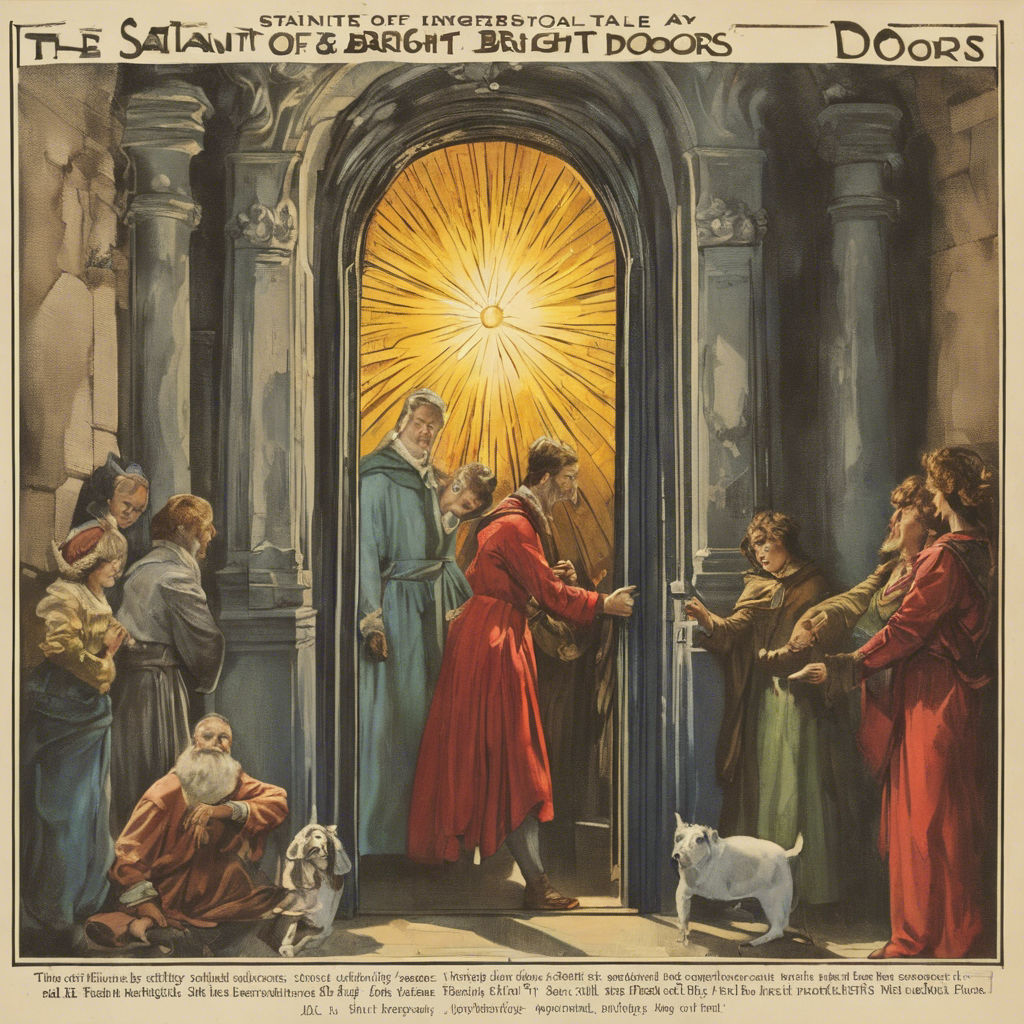Unraveling the Complexities of Fate and Redemption in Vajra Chandrasekera’s Latest Novel
In the bustling city of Luriat, where bright doors open onto nothingness, a protagonist named Fetter finds himself entangled in a web of intrigue and haunted by a destiny he has chosen to forsake. Vajra Chandrasekera’s latest novel, “The Saint of Bright Doors,” takes readers on a journey through a world where chosen ones shun their spectacular destinies in favor of marginalized lives. With its unique narrative and thought-provoking themes, this book has captivated readers and established itself as a standout work of the year.
A City of Enigmatic Portals
The city of Luriat serves as a backdrop for “The Saint of Bright Doors,” its streets lined with numerous bright doors that lead to nothingness. These enigmatic portals, with their allure and mystery, become a focal point for Fetter’s curiosity. Chandrasekera skillfully weaves a tale that explores the significance of these doors and their connection to the characters’ lives, immersing readers in a world where the boundaries between reality and the unknown blur.
The Almost-Chosen-Ones
Fetter, the novel’s protagonist, is just one of many almost-chosen-ones who have deliberately chosen to reject their extraordinary destinies. These individuals, once on the cusp of greatness, have opted for a life on the fringes of society. Chandrasekera delves into the complexities of their decisions, delving into themes of identity, agency, and the consequences of defying fate. Through Fetter’s journey, readers are compelled to question the nature of destiny and the power of choice.
A Father’s Shadow
At the heart of Fetter’s journey lies his tumultuous relationship with his estranged father, the Perfect and Kind. Trained since childhood to kill his godlike father, Fetter grapples with conflicting emotions and a desire for redemption. Chandrasekera explores the intricate dynamics between parent and child, delving into themes of forgiveness, reconciliation, and the search for self-identity. As Fetter navigates the treacherous path towards understanding his father, readers are drawn into a tale of familial bonds and the complexities of love.
Comprehending Atrocity through Fiction
“The Saint of Bright Doors” offers readers a profound exploration of the atrocities that plague our world. Chandrasekera’s masterful storytelling provides a grammar for comprehending these knots of darkness without resorting to simplistic allegory. Through the intricate narrative, readers are encouraged to reflect on the complexities of human nature, the consequences of our actions, and the potential for redemption. This thought-provoking approach elevates the novel beyond mere entertainment, inviting readers to engage with larger societal issues.
A Dazzlingly Original Work
Chandrasekera’s novel stands out for its originality and nimble prose. With a protean narrative style, the author deftly navigates between various genres, blending elements of fantasy, mystery, and literary fiction. The result is a captivating and immersive reading experience that keeps readers on the edge of their seats. Chandrasekera’s skillful craftsmanship and vivid imagination transport readers to a world both familiar and alien, leaving an indelible mark long after the final page is turned.
Conclusion:
“The Saint of Bright Doors” is a literary masterpiece that defies categorization. Vajra Chandrasekera’s ability to craft a story that seamlessly blends genres while tackling profound themes is a testament to their talent as a writer. Through the journey of Fetter and the exploration of destiny, family, and the complexities of human nature, readers are left with a renewed sense of wonder and a deeper understanding of the world we inhabit. This novel is a must-read for anyone seeking a thought-provoking and unforgettable literary experience.











